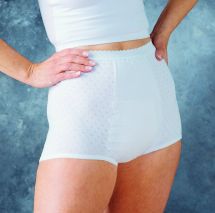 Photo from Pexels
Photo from Pexels
There are many ways to reduce and prevent acne, such as modifying your skin care kit to include facial washes and scrubs that unclog pores and using non-comedogenic skin cosmetics, but another way that might be effective is to create an acne diet. Changing your eating habits may seem daunting at first; however, this type of diet may lead to clearer skin, which can save you time and money on acne treatments later on. If you want to create an acne diet, there are several steps you can take to start down the path to healthy, acne-free skin.
1. Reduce Your Sugar Intake
Some tests performed by dermatologists suggest that a diet high in sugar may increase the risk of developing acne or make existing acne worse. Soft drinks, foods with refined sugar, and even starches like bread and potatoes can spike your blood sugar, as these foods turn into sugar once your body absorbs them. The body then must produce a great deal of insulin to deal with the sugar spike, which upsets the balance of hormones in the body.
Ingesting high amounts of sugar causes your body’s cells to work harder to absorb the sugar, which causes inflammation when they become overloaded. Therefore, the first step in creating an acne diet is to reduce the amount of sugar you eat. Cut back on sugary snacks and replace them with low-sugar options, such as sliced or cubed vegetables.
2. Eat Foods Rich in Vitamin A
One important aspect of building an acne diet is to eat foods that are rich in vitamin A. When you consume foods such as liver, egg yolks, sweet potatoes, and spinach, the vitamin A they contain converts into retinol, which is a vital element for keeping the skin healthy. Retinol helps the skin shed dead, dying, and damaged skin cells more quickly, which promotes new growth of healthy cells.
Retinol is also a powerful cell communicator and keeps skin cells from acting abnormally, which may reduce inflammation. If you cannot tolerate eating liver, then you may want to consider adding a fish or liver oil supplement to your diet to receive the retinol that these foods contain.
3. Consume Antioxidant-Rich Foods
Foods that are rich in antioxidants should be part of your acne diet plan because antioxidants prevent damage caused by free radicals in the skin and help to remove toxins, such as p. acne bacteria. Some antioxidants include vitamin C, D, and E. While vitamin C is a powerful antioxidant, you may want to be careful about where you get it from.
For example, you may think that orange juice is a quick and easy way to get vitamin C, but orange juice and oranges themselves contain quite a bit of sugar, which can sabotage your acne diet. Instead, consider getting vitamin C and other antioxidants from veggies such as chili, green, and red bell peppers, kale, strawberries, and cruciferous vegetables like broccoli and cauliflower.
4. Drink Water
Drinking at least eight glasses of water a day can flush free radicals from your system, help you lose weight, and keep your skin hydrated and healthy. It can also reduce the presence of toxins that may cause certain types of cancer. While new cancer screening equipment is being developed by genetics experts such as Dr. Harry Stylli, you can lower your risk factors in the meantime by replacing sugary drinks with filtered water.
While an acne diet may not clear your skin on its own and should be used in conjunction with other acne treatments recommended by your dermatologists, it may help to reduce hormonal imbalance and sugar spikes that aggravate acne breakouts. If you are under the care of a doctor for any reason, consult with him or her before beginning an acne diet.
